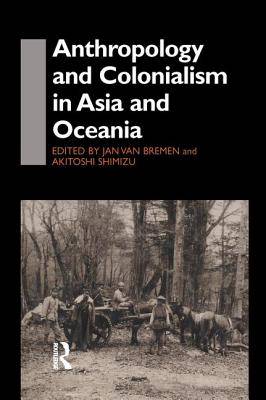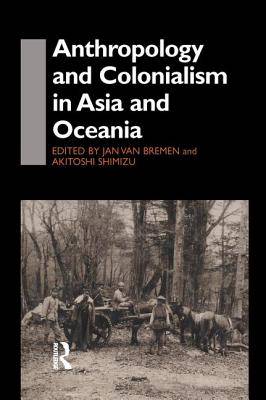
- Afhalen na 1 uur in een winkel met voorraad
- Gratis thuislevering in België vanaf € 30
- Ruim aanbod met 7 miljoen producten
- Afhalen na 1 uur in een winkel met voorraad
- Gratis thuislevering in België vanaf € 30
- Ruim aanbod met 7 miljoen producten
Zoeken
Anthropology and Colonialism in Asia
Comparative and Historical Colonialism
Jan Van Bremen, Akitoshi Shimizu
€ 62,45
+ 124 punten
Omschrijving
For a time it was almost a cliche to say that anthropology was a handmaiden of colonialism - by which was usually meant 'Western' colonialism. And this insinuation was assumed to somehow weaken the theoretical claims of anthropology and its fieldwork achievements. What this collection demonstrates is that colonialism was not only a Western phenomenon, but 'Eastern' as well. And that Japanese or Chinese anthropologists were also engaged in studying subject peoples. But wherever they were and whoever they were anthropologists always had a complex and problematic relationship with the colonial state. The latter saw some anthropologists' sympathy for 'the natives' as a threat, while on the other hand anthropological knowledge was used for the training of colonial officials. The impact of the colonial situation on the formation of anthropological theories is an important if not easily answered question, and the comparison of experiences in Asia offered in this book further helps to illuminate this complex relationship.
Specificaties
Betrokkenen
- Auteur(s):
- Uitgeverij:
Inhoud
- Aantal bladzijden:
- 424
- Taal:
- Engels
- Reeks:
Eigenschappen
- Productcode (EAN):
- 9780415759892
- Verschijningsdatum:
- 19/05/2014
- Uitvoering:
- Paperback
- Formaat:
- Trade paperback (VS)
- Afmetingen:
- 156 mm x 233 mm
- Gewicht:
- 611 g

Alleen bij Standaard Boekhandel
+ 124 punten op je klantenkaart van Standaard Boekhandel
Beoordelingen
We publiceren alleen reviews die voldoen aan de voorwaarden voor reviews. Bekijk onze voorwaarden voor reviews.











